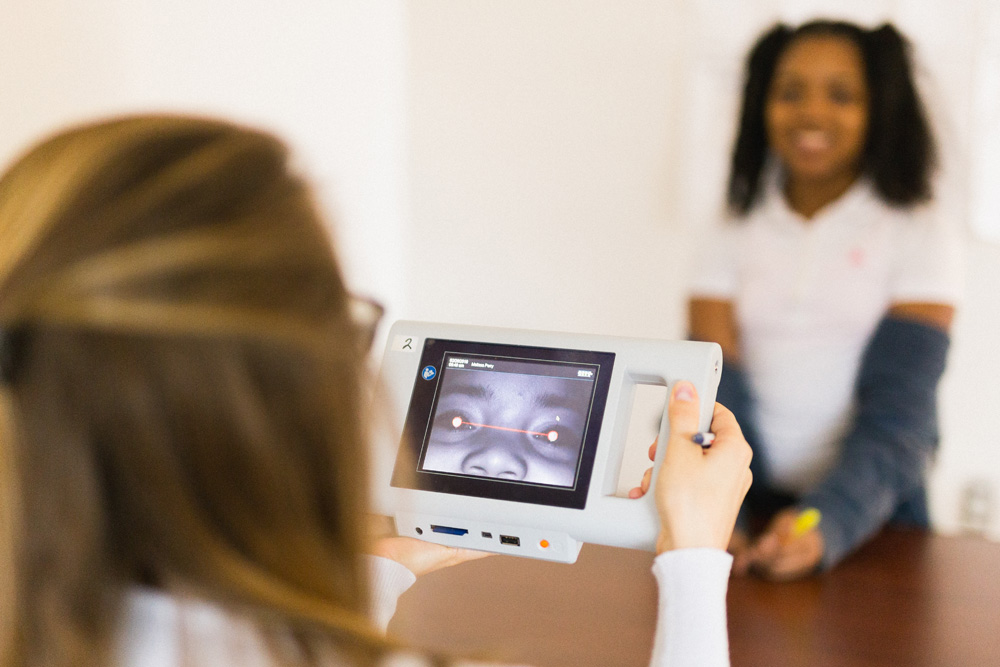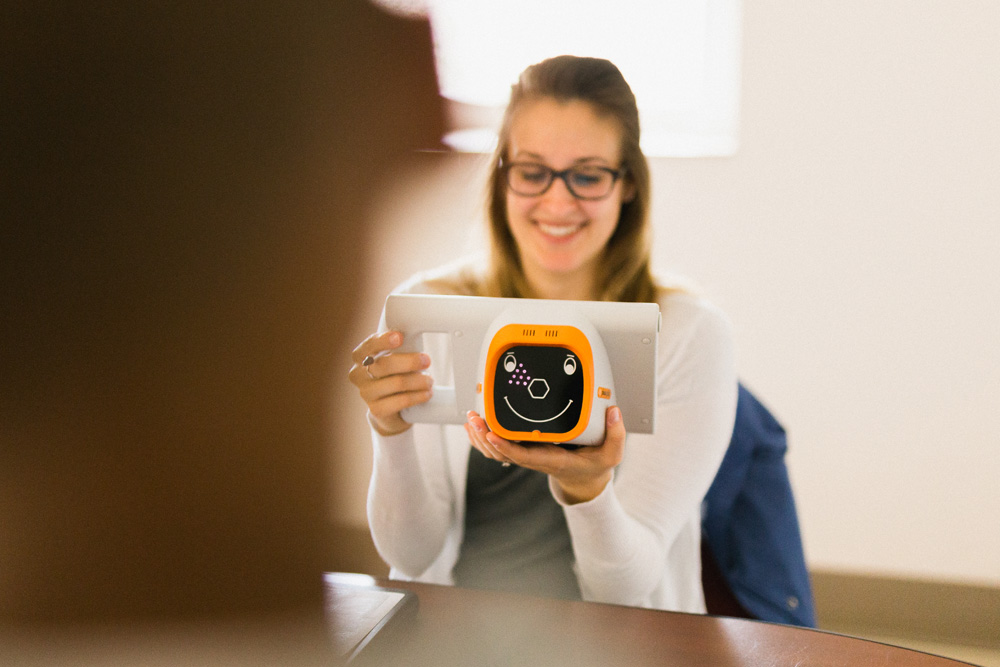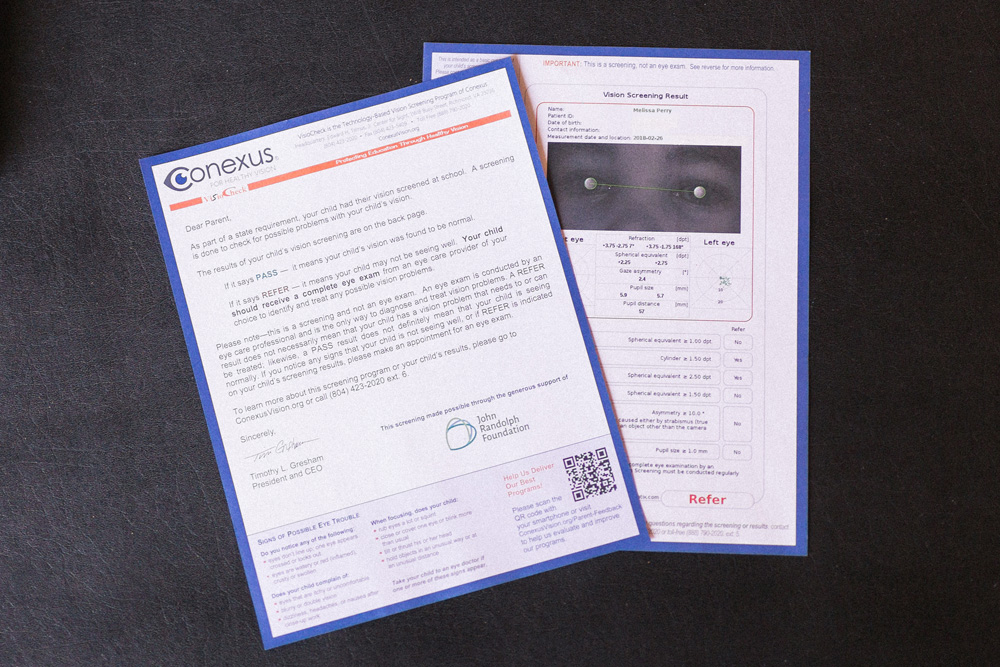
Better Vision, Better Future: Conexus Helps Kids See
March 26, 2018 12:49 pmYoung children may not be aware that their vision is a problem. Those vision problems can turn into learning problems. We feel it’s critical to our mission of creating healthy communities and bright futures that we remove vision challenges and make way for improved education.
Conexus was an obvious choice when we looked for a partner to make it happen. Their tech-based vision screenings and data collection demonstrated a path forward we could easily get behind.

Conexus Screening technician, Corrine Huber, conducts a vision test on a student at J.E.B. Stuart Elementary. Conexus uses Plusoptix vision screening devices.
You see, Conexus already provides state-mandated screenings: one hand over one eye, read the chart. The other hand over the other eye, read the chart again. However, kids can pass by memorizing the chart, squinting, guessing etc. So, Conexus sought out funding beyond the state mandate to bring a new way of screening to Virginia. It’s called the Visio Check, and it’s amazing.
“John Randolph Foundation was instrumental in bringing technology-based screenings into the Tri-Cities area. Without their support we would only be able to provide the chart based test which kids can, for lack of a better term, cheat to pass,” said Robin Mead, Conexus VP/Development.
I had the chance to watch this cutting edge screening at Petersburg’s J.E.B. Stewart Elementary. One by one, students stand opposite a smiley-faced VisioCheck scanner in the hands of a screening specialist. The VisioCheck measures physical differences in the eyes, scans for astigmatism, nearsightedness, and farsightedness among a host of other things. Because the students don’t have to do anything, the results can’t be fudged.

A J.E.B. Stuart student receives a vision screening. This device measures farsightedness, nearsightedness, blurred vision, unequal refractive power, unequal pupil size, and eye misalignment.
Once the screenings are complete, the Conexus team takes the data back to the office and prints out the results of each test to send back to the school. Students receive their results with either a “pass” or “refer” result.
“The average percentage of kids with vision problems detected by a screening across the US is 25%. What we have found across our more economically challenged, and especially urban communities, such as Petersburg and Hopewell, is that the rate of referrals is 30% or even higher,” said Robin.

Students receive a letter like this with test results and referrals for services, if necessary.
For the Foundation, the data Conexus collects during screenings is crucial, and a truly exciting aspect of our partnering with Conexus. It’s shown that students with vision problems are, in fact, struggling academically, but students who receive glasses as a result of their Conexus screening are making vast improvements. Success!
But that’s not the end of their success. Conexus is a state-wide organization. They are using the collected data from their screenings (anonymously) to petition that technology-based screening be mandated across the Commonwealth of Virginia.
While the Tri-Cities community is at the core of who we are and what drives us every day, we are excited to partner with Conexus here on the cutting edge of seeing healthy communities and bright futures across the state.
Tags: Bright Futures, Education, Grantee Spotlight, Grants, Health and Wellness, Healthy Communities, Nonprofit, Partnership, Petersburg, Tri-cities, Youth DevelopmentCategorised in:
This post was written by AJ James
Comments are closed here.